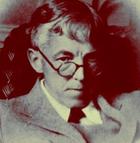
British mathematician who formulated the inequality that bears his name. He was the main supporter in Britain and thesis director of the self-taught Indian mathematician Ramanujan (1887-1920), known for some of his astonishing formulas. Her parents, school teachers, were inclined towards mathematics, and hers was present very early. When he was two years old he wrote numbers greater than two million, and he tested himself by factoring the numbers of the hymns in the church. After attending school in Cranleigh, he entered Winchester College. In 1896, he went to Trinity College (Cambridge). He held the Sadlerian chair from 1931 to 1942; he had left Cambridge in 1919 to take over the Savilian chair of Geometry at Oxford. Considered the best mathematician of his time in the United Kingdom, Hardy's work covers a wide variety of topics, including diophantine analysis, sum of divergent series, Fourier series, Riemann function and prime numbers. . He collaborated with the Indian mathematician Ramanujan on the theory of algebraic functions. He was an avowed anti-warmaker during both world wars, as he felt unable to fight a people, the German, that so many mathematicians had given to the world, which put him in an awkward position in front of his colleagues.





